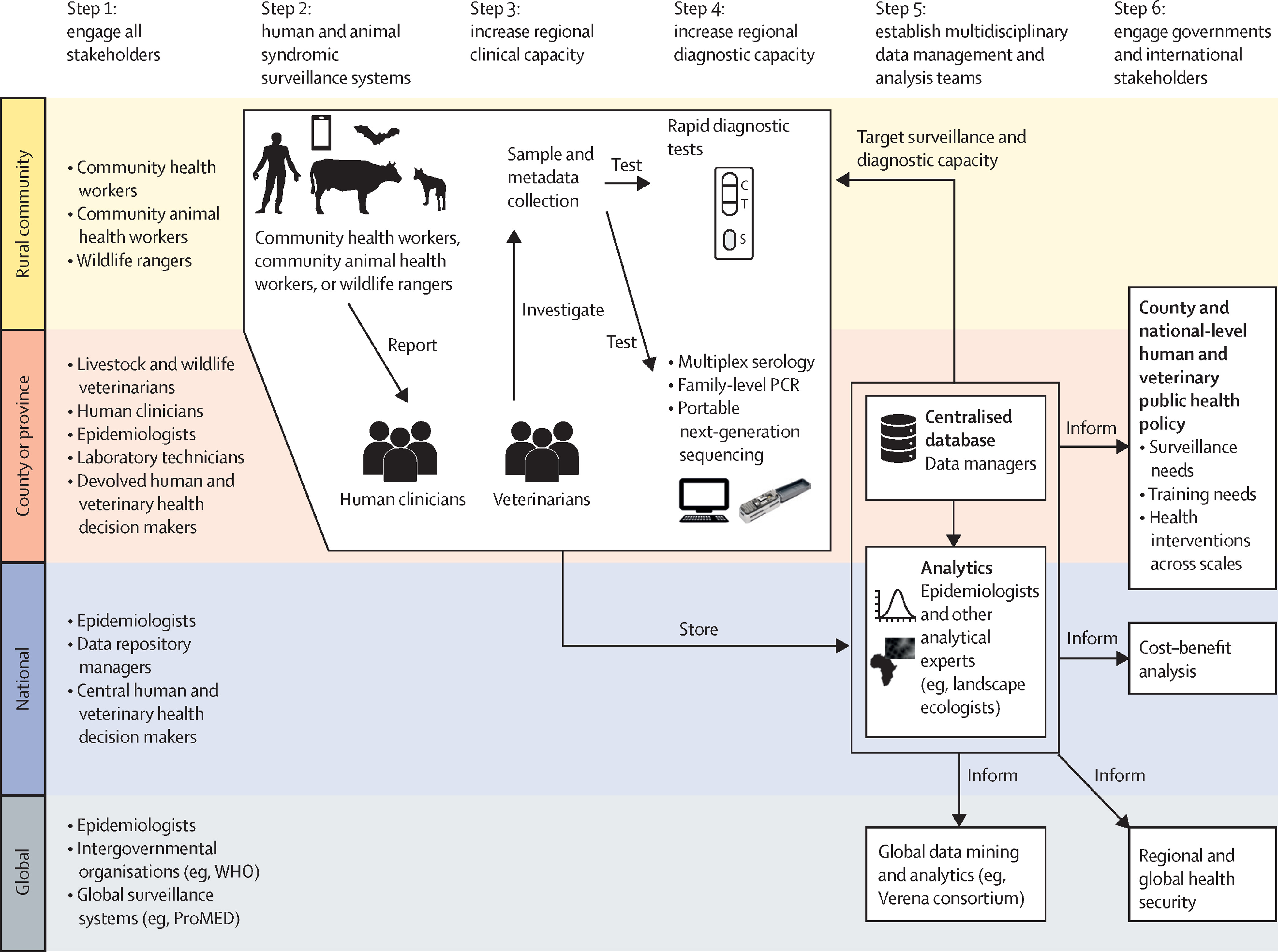Elsevier,
The Lancet Global Health, Volume 10, April 2022
This Viewpoint supports SDG 3 by highlighting why investing in disease surveillance in remote rural areas of LMICs will benefit global communities, and using Kenya as an example, showing how such surveillance can be strengthened and integrated into existing systems while sustaining biodiversity.
Elsevier,
Water Resources and Economics, Volume 38, April 2022
Decoupling has increasingly been recognized as a way to reconcile limitless economic growth with environmental pressures. This study assesses current and projected future decoupling factors of water withdrawals in relation to GDP.
Elsevier,
One Earth, Volume 5, 15 April 2022
Phthalates are used in plastic production to make plastic products more durable, but they can reliease toxic pollutants via airborne that cause varios metabolic disorders. This research article evaluates the potential health benefits in terms of reducing metabolic disorders (e.g. diabetes & obesity) via strengthening the standards on the use of phthalates in China, the world's leading markets of phthalates.
Elsevier,
Virus Research, Volume 311, 2 April 2022
Viral metagenomics is widely applied to characterize emerging viral pathogens but it can also reveal the virome composition in health and disease. The evaluation of the virome in healthy blood donors can provide important knowledge on possible transfusion threats.
Elsevier, Free Radical Biology and Medicine, Volume 183, April 2022
Genistein is a phytoestrogen that, due to its structural similarity with estrogen, can both mimic and antagonize estrogen effects. Early analysis proved that at high concentrations, genistein inhibits breast cancer cell proliferation, thereby suggesting an anticancer activity. Since then, many discoveries have identified the genistein mechanism of action, including cell cycle arrest, apoptosis induction, as well as angiogenesis, and metastasis inhibition.
Elsevier,
Applied Geochemistry, Volume 139, April 2022
The predicted future climate change can be expected to have an impact on the biogeochemical conditions in pit lakes that must be considered when modelling pit lake water quality. Climate change might e.g., affect temperature and precipitation patterns, which can influence other factors such as water balance, hydrology, limnology, and biogeochemical prediction
Elsevier, Current Developments in Nutrition, Volume 6, 1 April 2022
This paper concludes that effective local implementation of MSN (Multisectoral Nutrition) policy requires country-level commitment together with local leadership and capacity building, and community engagement to ensure efforts fit program contexts.

